COMPUTATIONAL DESIGN // STRANGER SCENES
Stranger Scenes is the development of a kinetic facade system based on the movement of suspended alginate gel to create varying patterns of transluscency and opacity.
The computational approach consists in understanding the physical behaviour of the material (coloured sodium alginate gel) and extrapolating those behavioural rules into a computer code. Through this code a deep understanding of the material properties is acheived so as to be able to predict its behaviour under theoretical circumstances. For that a pyhton code was elaborated borrowing from concepts of known behaviours such as random walkers and diffuison limited aggregation.
The obtained particles are further manipulated into meshed clumps which are then sectioned and planarised for an in depth study of material densities and its varying opacitites.
Once the material properties, viscosity, desity, translucency, are understood this are input into a simulation software to be able to generate large particle systems. The setup is established as a fluid system that contains the properties of the simulated material. The particle system is then combined with a rigid body analysis solver to account for the manipulation of the material encapsulated in the panels with mechanised magnetic propellers. This way, it is possible to acheive an accurate simulation with a high correlation with the physical behaviour the material, thus allowing for fast feedback loops in the testing of the physical prototype of the facade panel, making the fabrication and design process faster and more efficient.
WORKFLOW
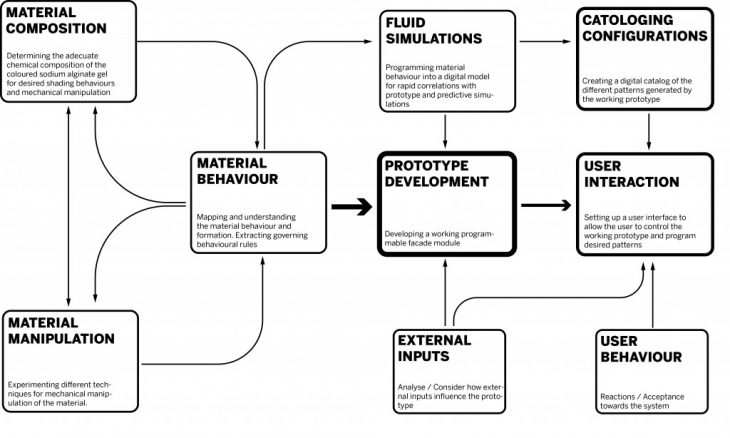
COMPUTATIONAL WORKFLOW
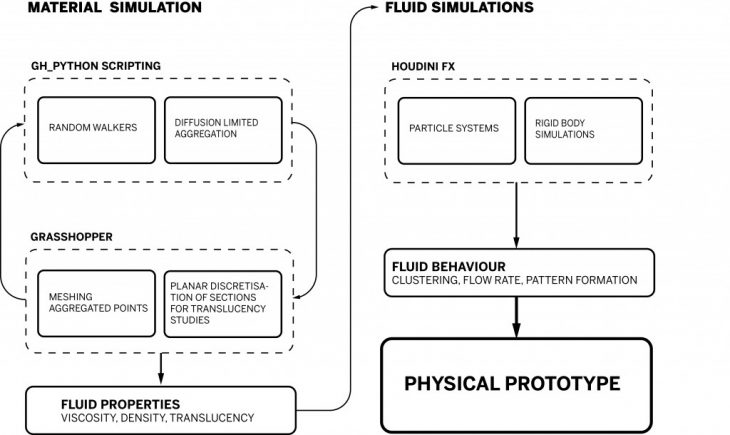
MATERIAL SIMULATION
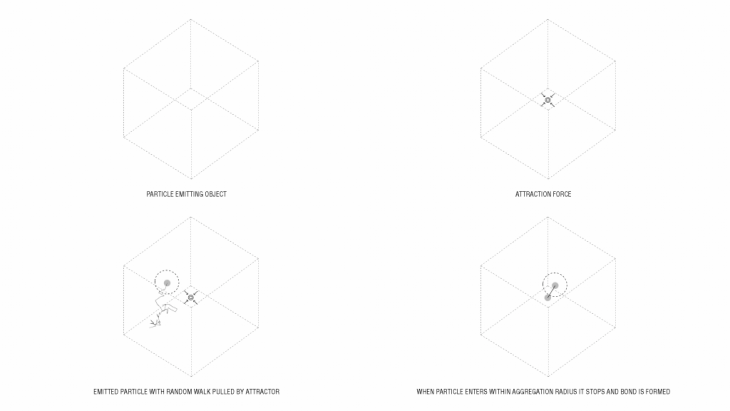
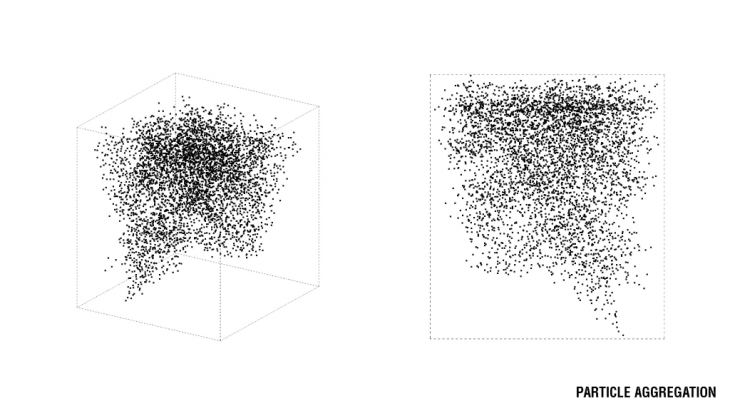
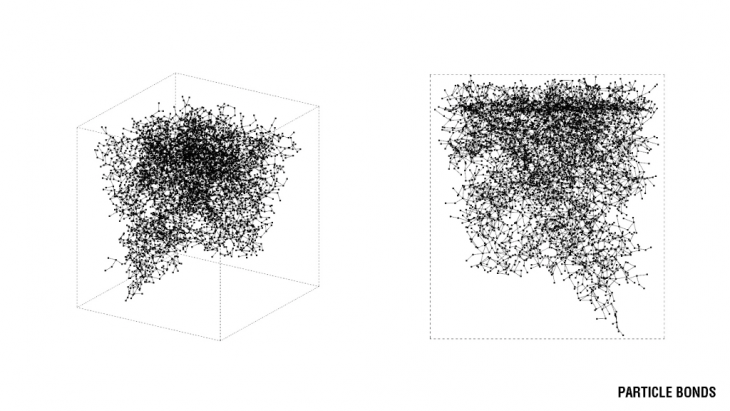
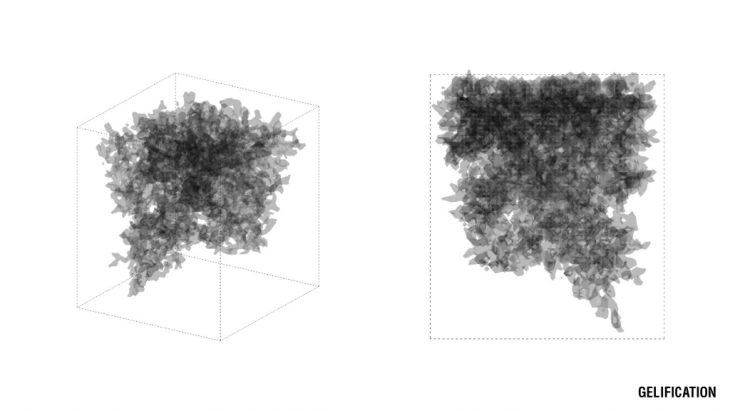
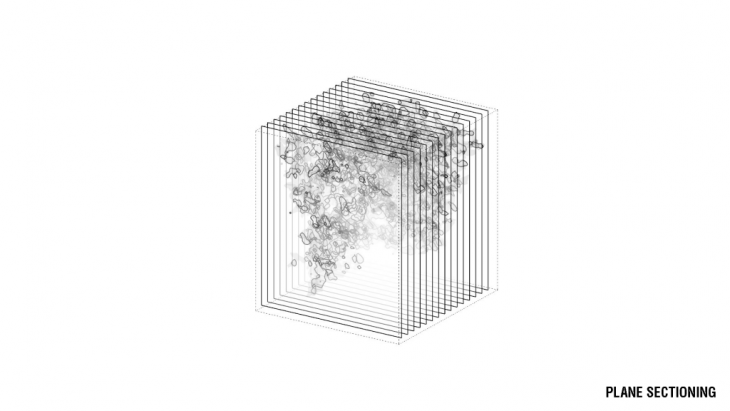
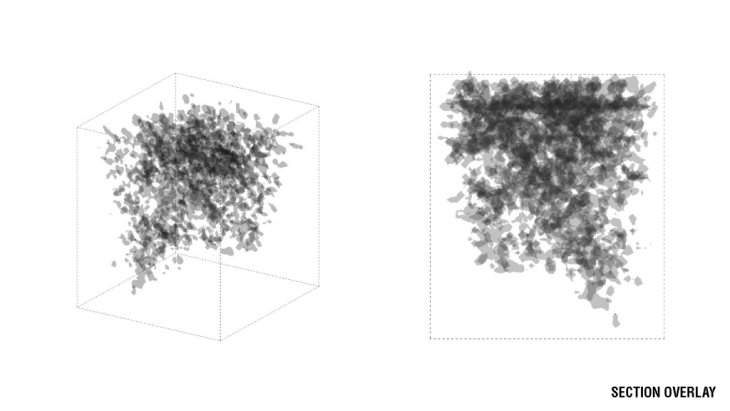
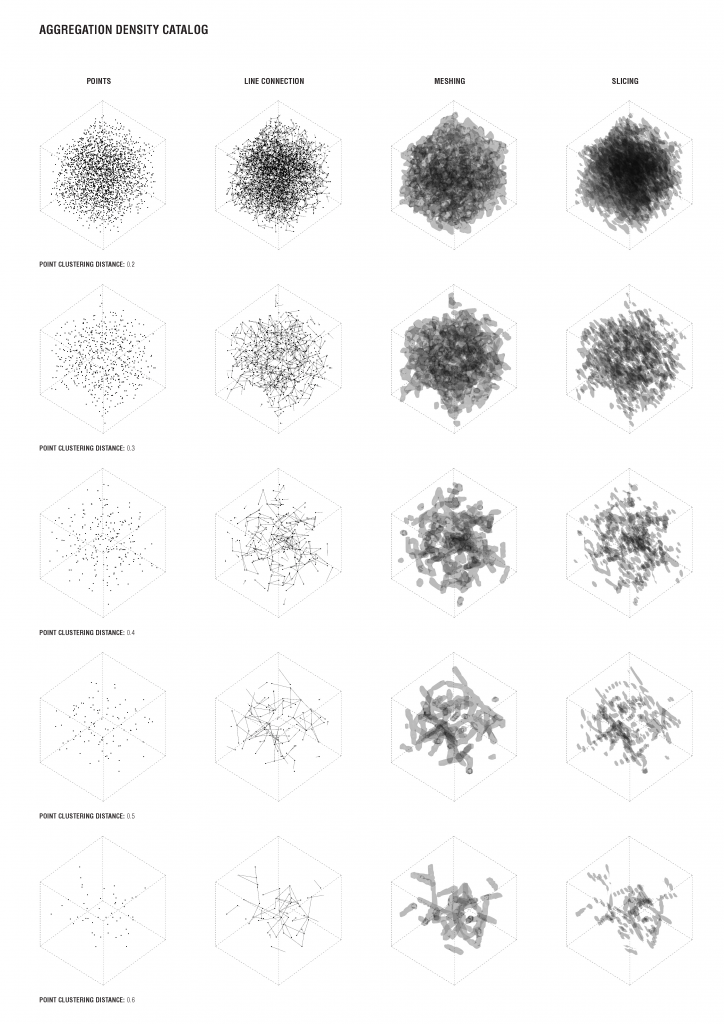
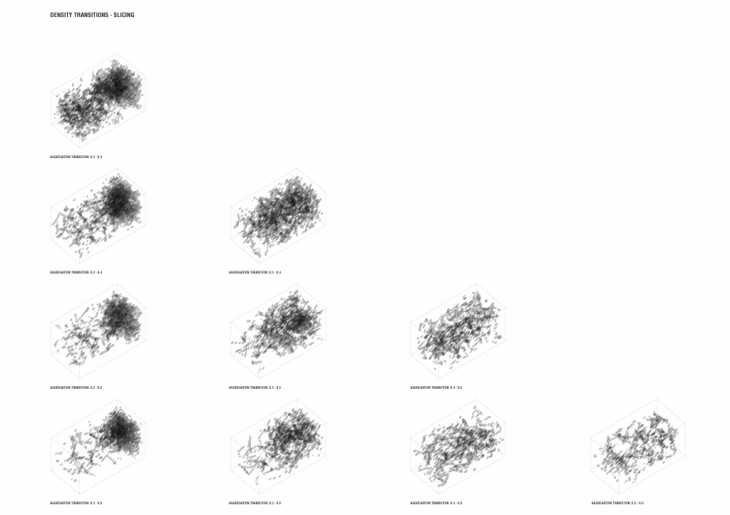
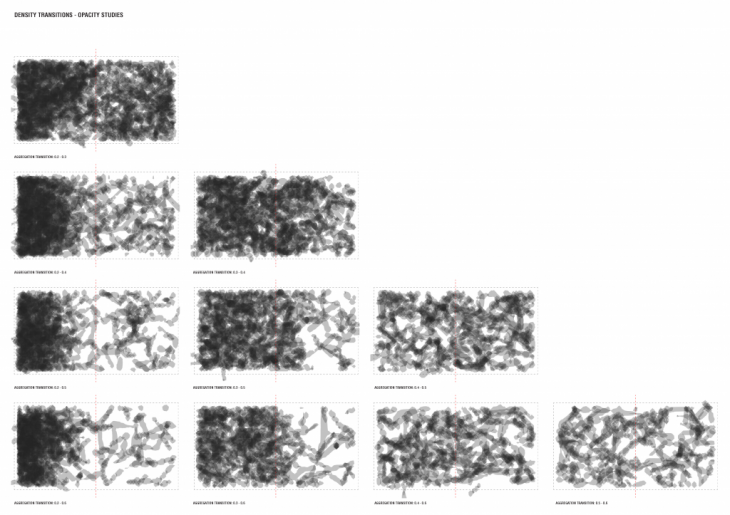
FLUID SIMULATIONS
PROJECT BY: Sebastian Amorelli